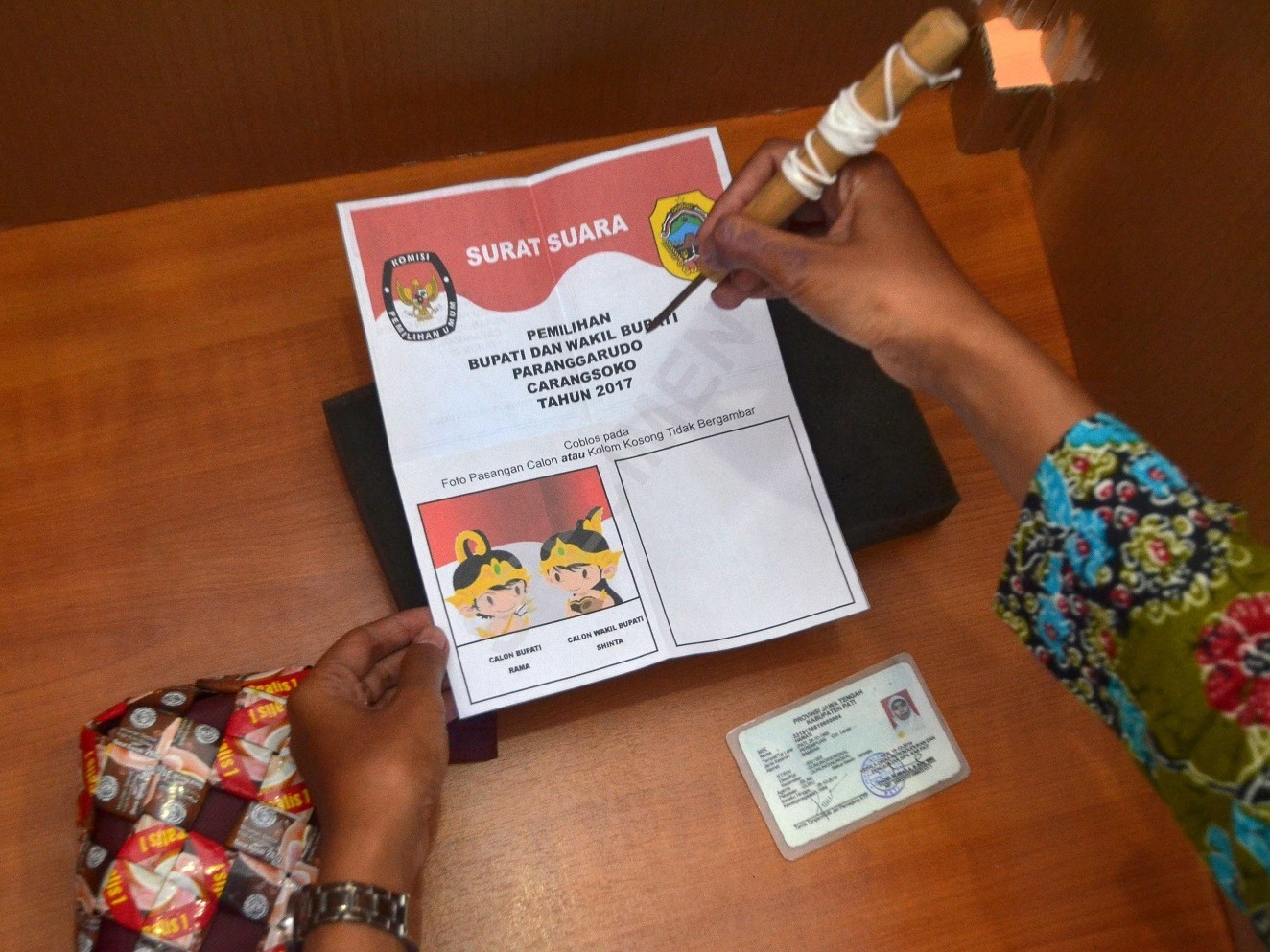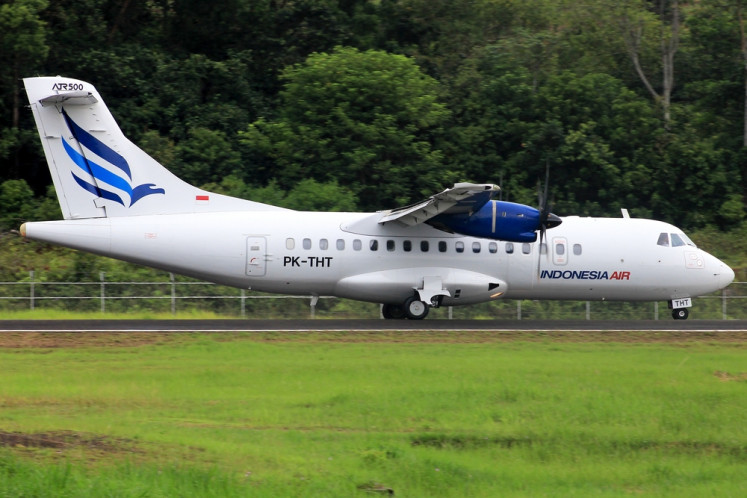Popular Reads
Top Results
Can't find what you're looking for?
View all search resultsPopular Reads
Top Results
Can't find what you're looking for?
View all search resultsRising number of uncontested races undermines regional polls
Change text size
Gift Premium Articles
to Anyone
T
he number of sole candidates running in Indonesia’s regional elections has steadily increased in the past five years, election data has shown, leading to growing concerns that the upcoming polls might ruin the electoral system.
A total of 28 out of the 270 regions holding elections this December are likely to see a single candidate pair run for the top seats, according to recent General Elections Commission (KPU) data.
This is more than nine times as many as when sole candidacies were first allowed in the 2015 elections, which were held in a similar number of regions as this year’s polls.
The data shows that the number of sole candidates has steadily increased in every election year: From only three sole candidate pairs in the 2015 elections, the number rose to nine in 2017, 16 in 2018 and now 28.
The trend has critics raising concerns over the possibility that the elections are becoming more unfair with each passing year, while also limiting the chances of independent candidates to succeed.
Khoirunnisa Nur Agustyati, the executive director of elections watchdog the Association for Elections and Democracy (Perludem), said many factors were to blame for the rising number of sole candidate pairs.
However, the biggest sticking point may be the tougher requirements that independent candidates have to meet prior to even registering their intent to run.
Read also: KPU records sharp decline in independent candidates for year-end polls
Based on regulations, independent candidates must be able to show proof that there is enough support for an eventual election campaign.
In the 2015 polls, prospective candidates were required to gather the identity card numbers of 3 to 6.5 percent of voters on the final voters list in their respective regions, as per Government Regulation in Lieu of Law (Perppu) No. 1/2014 on regional elections.
But the threshold for public support was later raised to 6.5 to 10 percent of voters on the final voters list when the 2015 Regional Elections Law was passed, which was then enforced for the 2017 and 2018 regional polls.
“I believe that there might be individuals who are capable and willing to be regional leaders, but they just weren’t able to amass enough public support due to the higher bar set,” Khoirunnisa said during a webinar on Thursday.
A lone candidate pair contesting rarely loses to the “blank box”, a space on the ballot paper provided to voters who wish to reject the sole candidate pair.
Read also: ‘Blank box’ to compete with sole candidates
Sole candidates have only been allowed since 2015, after the Constitutional Court struck down a clause in the Regional Elections Law requiring the KPU to confirm at least two candidate pairs in every provincial, regency or municipal election. But the new provisions have instead exposed the failings of the current political party system.
Critics have long pointed to the failure of so-called regeneration among political parties as a possible driver for the lack of competent candidates running for office, resulting in a surge in one-horse races.
Read also: Expert links sole candidacies to poor party regeneration
Khoirunnisa said that instead of backing their own members as candidates, political parties tended to partner up in big-tent coalitions and support the candidate pair that was most likely to win, such as incumbent leaders or members of existing political cliques.
According to KPU data, 16 out of 28 prospective sole candidates are incumbents, while the remaining few are either members of regional councils or relatives of prominent figures in the country.
The list includes Hanindhito Himawan Pramono, a sole candidate running for Kediri regency in East Java from the Indonesian Democratic Party of Struggle (PDI-P). He is the son of Cabinet Secretary Pramono Anung, a former lawmaker and respected senior PDI-P politician.
Read also: One political dynasty makes way for another as Kediri prepares to vote
There were bound to be a lot of “grand coalitions” if all the political parties had the same mindset, said Khoirunnisa.
“This is the sort of situation that will lead candidates running for office to focus only on canvassing support from coalitions rather than the public,” she said. “But it won’t be a healthy democracy because, when it comes to the elections, the public – not the parties – should be the main attraction.”
Centre for Strategic and International Studies (CSIS) political researcher Arya Fernandes said that any regional election featuring a candidate running uncontested with backing from a big-tent coalition would likely produce leaders of poor quality.
Such candidates are prone to misusing their power, whether embezzling regional funds or political horse-trading for positions in the administration, he said.
Both Arya and Khoirunnisa suggested revising the threshold for public support of independent candidates in order to pave the way for more healthy competition in future elections.
Elections Supervisory Agency (Bawaslu) member Ratna Dewi Pettalolo said that her agency had found several cases of vote buying in elections where only a sole candidate pair was running.
She said, however, that Bawaslu was unable to report the alleged perpetrators to the police due to a lack of supporting evidence.
“Most transactions involving ‘political dowry’ are carried out in the dark. But now we are committed to tracing any information on such practices and will gather as much evidence as possible,” Ratna said.
Offering a “political dowry” – that is, depositing a sum of money to political parties in the hopes of securing their support – violates articles 47 and 187 of the 2016 revision of the Regional Elections Law.










